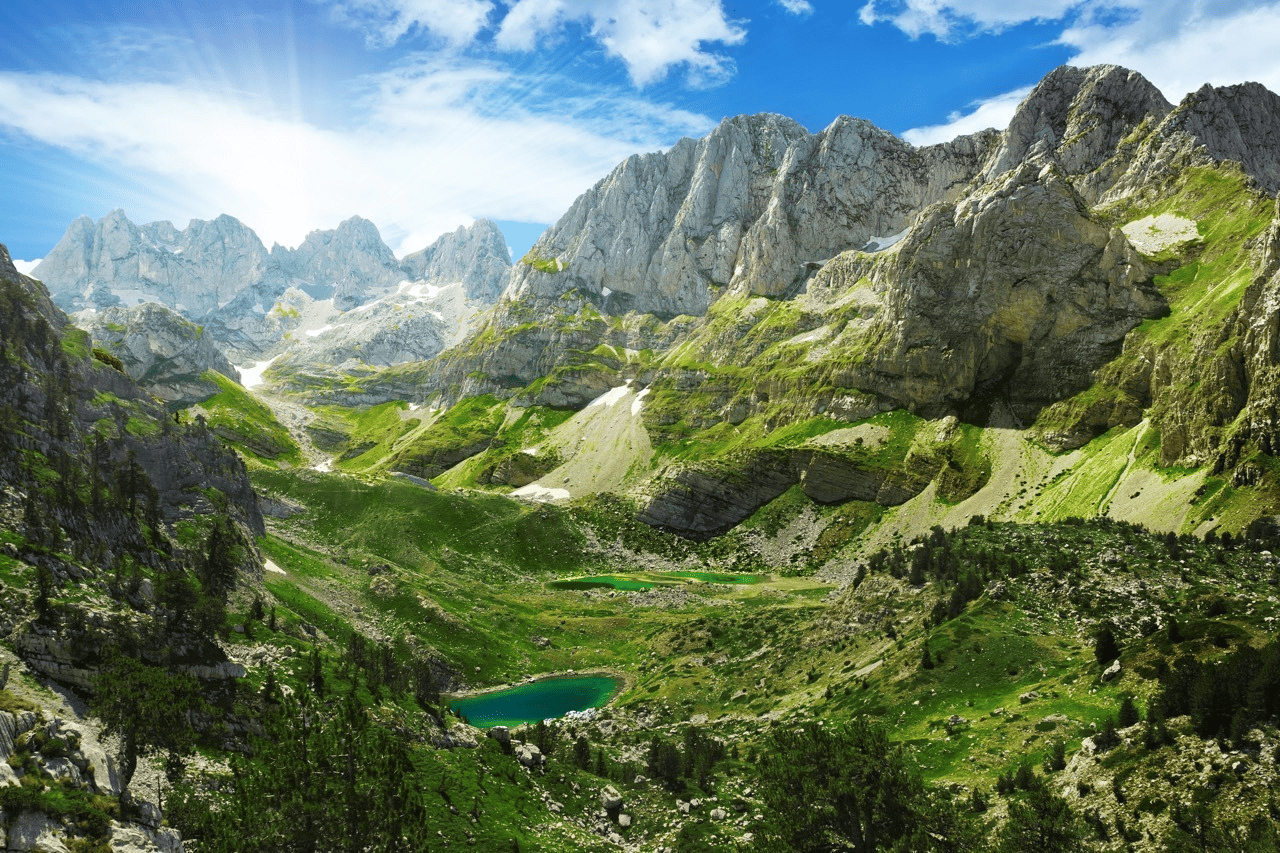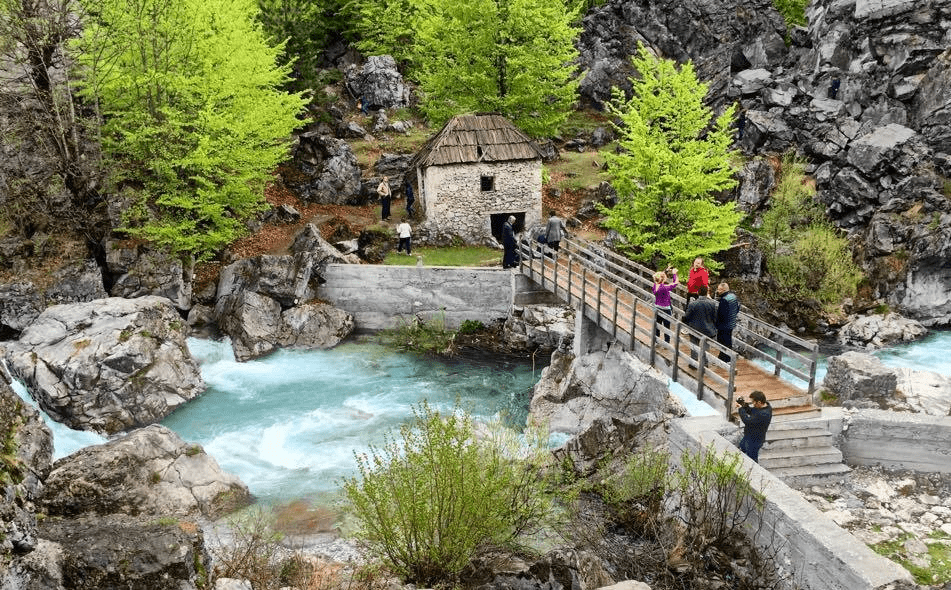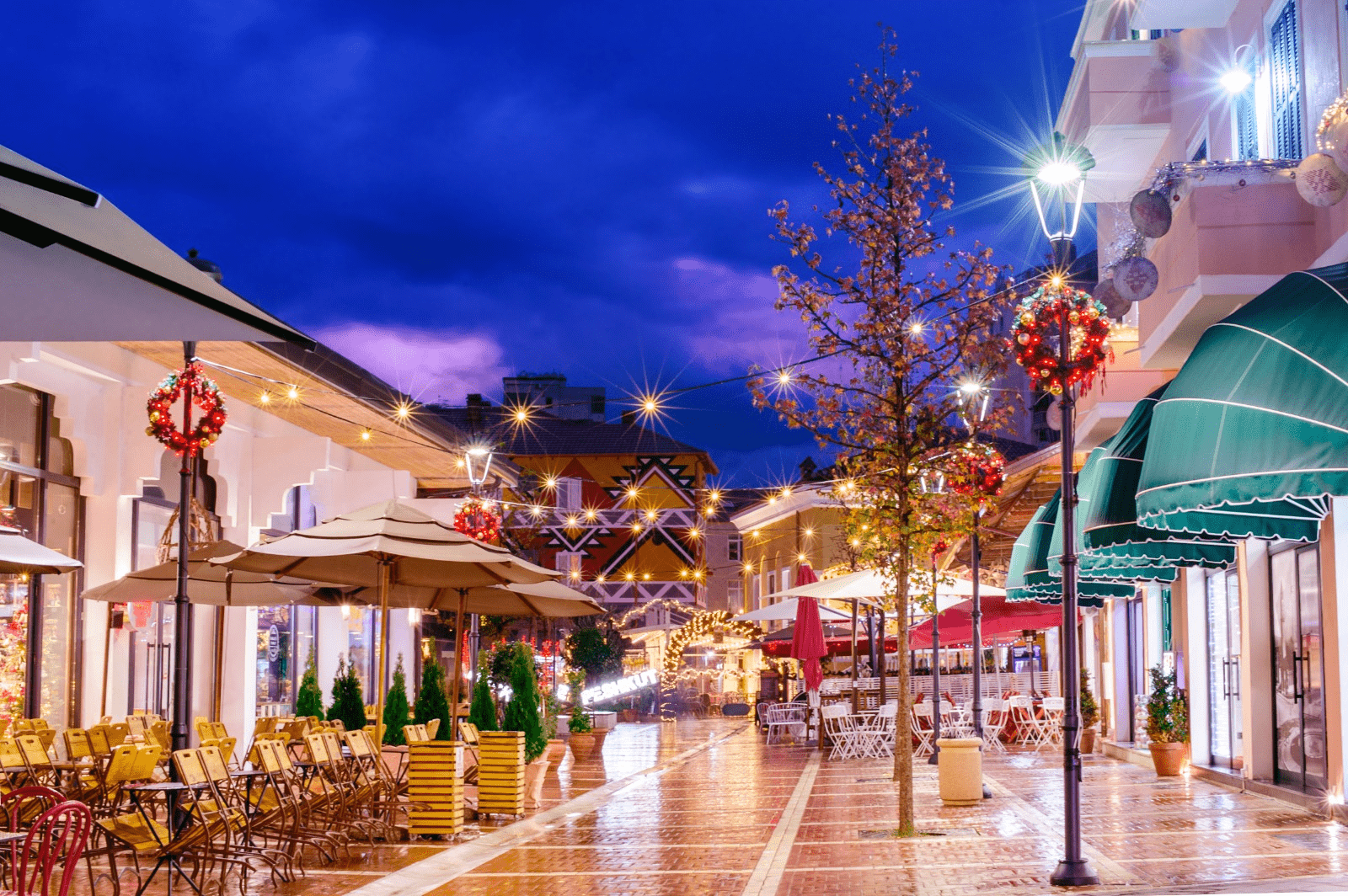General Information About Albania

Geographic Position
Albania is located in Southeastern Europe, on the western part of the Balkan Peninsula, with an area of 28,748 km². The total length of the border of the Republic of Albania is 1,094 km: of which 657 km is land border, 316 km is maritime border, 48 km is river border, and 73 km is lake border. The Republic of Albania is bordered to the north by Montenegro, to the northeast by Kosovo, to the east by North Macedonia, and to the south and southeast by Greece. To the west, Albania is bordered by the Adriatic Sea and to the south by the Ionian Sea. The average elevation is 708 m, which is twice as high as the rest of Europe. Albania is located in the subtropical zone with humidity from the northern hemisphere and falls under the Mediterranean climate zone.
The population of Albania on January 1, 2022, was 2,793,592 inhabitants, showing a decrease of 1.3% compared to January 1, 2021.
Official Language - Albanian
Albanian is an Indo-European language and represents a distinct branch of this family based on its originality.
Albania is considered one of the most polyglot countries in Europe. Many Albanians in the country and around the world speak more than two languages. Italian is widely spoken throughout Albania. Greek, the language of the Greek minority in the south, is also very widespread in our country, and English has become a second and necessary language after Albanian, especially among the youth. Other languages, such as French and German, are also spoken by a significant number of Albanians.

Climate
Coastal Areas: Mediterranean climate with mild, humid winters, hot and dry summers. Mountainous Areas: Continental climate with cold and harsh winters and humid summers.
History
The territories of present-day Albania have been inhabited since 100,000 years ago. The country has suffered continuous invasions, and at the end of the 14th century, Albania was invaded by the Ottoman Empire. The Albanians successfully fought the Ottomans during the years 1443-1468 under the legendary leadership of George Kastrioti Skanderbeg. The Ottoman Empire was stopped by the Albanians who saved Europe from occupation. Later efforts and uprisings for independence eventually led to the declaration of Albania's independence in 1912.
After 1912, until the end of World War I, the country was attacked by neighboring countries. The Albanians are remembered for sheltering the Jews from the neighbors during the war. The Communist Party took power in November 1944 when foreign troops were expelled. Immediately after this, the communist regime was established under the leadership of Enver Hoxha. For about 50 years, the regime enforced a policy of poverty until Albania eventually emerged from isolation in 1991. From 1991 to 1997, the country was led by the Democratic Party. Later, by the Socialist Party and its allies. The goal of Albanian politics is to integrate the country into the European Union. The capital of Albania is Tirana (since 1920), which is the main urban center of the country, while other major cities include: Durrës, Shkodra, Lezha, Fier, Vlora, Saranda, etc.
Albania is a member of the United Nations, NATO, OSCE, Council of Europe, WTO, and one of the founding members of the Union for the Mediterranean. Albania officially applied for membership in the European Union on April 28, 2009. On July 19, 2022, Albania and the European Union held their First Intergovernmental Conference in Brussels, marking the official start of membership talks for Albania.
Albania is also one of the initiators of the "Open Balkans", a concept launched in 2019, aimed at creating a zone for the free movement of people, goods, and services in the Western Balkans. The "Open Balkans" aims to promote communication in all areas. This communication is intended not only for economic development but also for stability and security in the region.

Albanian Economy
Albania, once a closed country with a centralized economy, underwent a difficult transition to a modern market economy. Macroeconomic development reached around 6% between 2004-2008, but it fell to 2% in 2009. Inflation is low and stable. The economy has been strengthened by remittances sent by emigrants over the years and other external factors such as the completion of the Vlorë thermal power plant, which has helped increase production capacity for energy. Plans for improving the electricity distribution lines with Kosovo and Montenegro have helped address energy supply problems and improve the economy. With the help of European Union funds, the government is taking measures to improve national roads and the railway system. This has been a barrier to long-term sustainable economic growth.
Tourism and Real Estate have also contributed to the growth of the Albanian economy by 3.7%, which is expected to slow down to 2% this year (2023) due to the consequences of the War...


